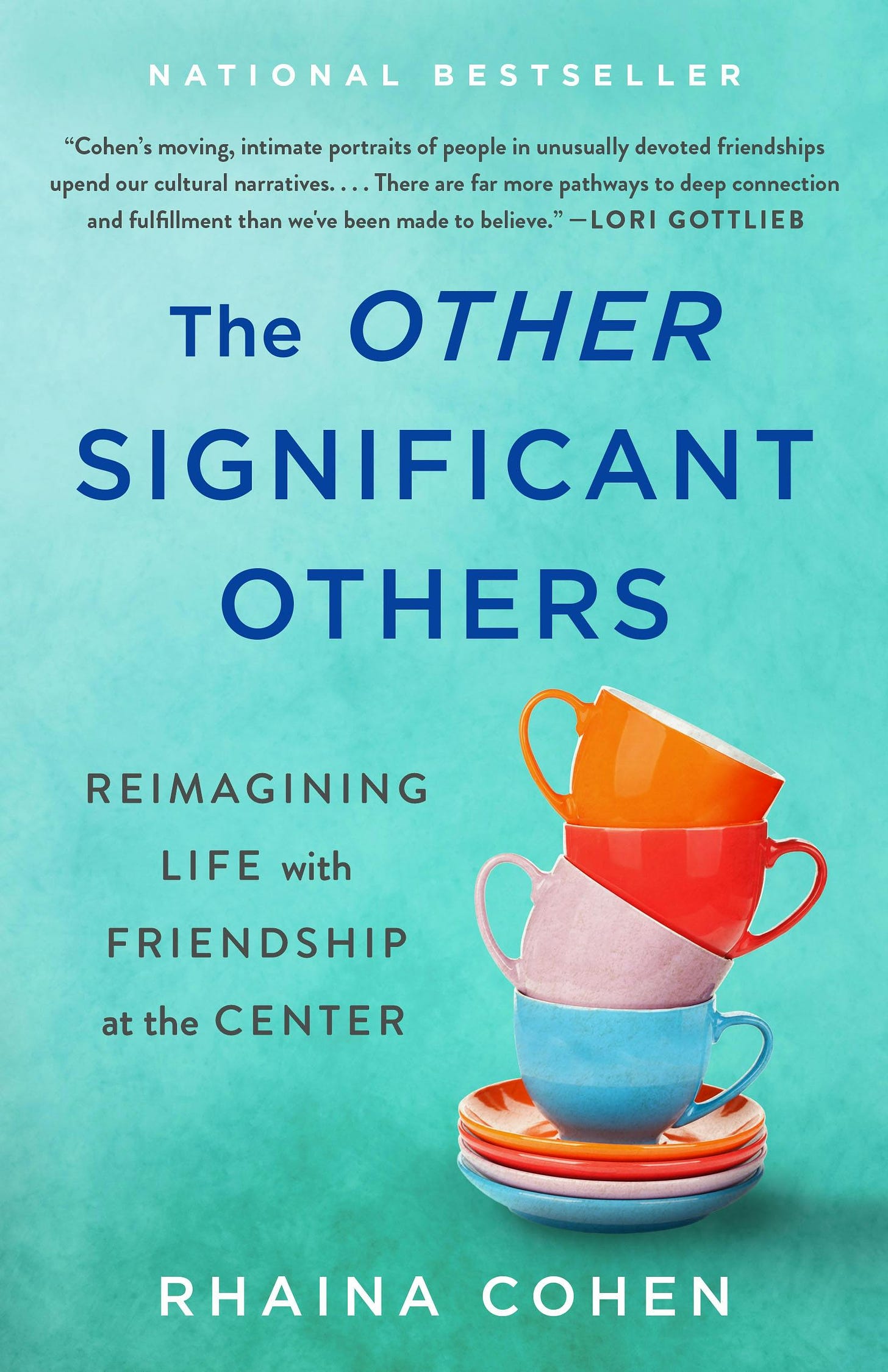On today’s NEW episode of our podcast, Don’t Think Twice, we welcome Rhaina Cohen to speak with us about her book The Other Significant Others. At its core, Rhaina’s work asks us to question life’s default settings.
There are two moments of our conversation that have been ringing in my ears since we recorded this episode. First:
“That’s the relationship escalator…there’s one direction to go in, and one definition of success. It doesn’t leave much room for people to figure out what works for them in particular.”
In a romantic relationship this might mean progressing (at the accepted pace; not too fast, not too slow!) from dating, to monogamy, meeting the parents, moving in together, having a baby, buying a house – without real consideration at each step. A one-size-fits-all approach to love.
While the book focuses on relationships, there are other types of escalators, too. Collecting promotions and bonuses year after year from a job that demands too much and gives too little. Or perhaps grinding out good grades in school, in order to go to a good college, in order to grind out more good grades, in order to go to grad school, in order to…
But listen: There’s comfort in boarding an escalator. You’re going to go somewhere that you’re "supposed to" go. People will congratulate you for each step (especially if that step involves engagement or marriage).
There were many, many times in my early 20’s when I wished for an escalator. I envied my friends whose professions fed them through regimented cohorts, tightly defined fellowship years, clerkships; the knowledge that being a first year associate led to being a second year associate, and on and on. That seemed sensible. I wanted a roadmap of how to work in the arts – just show me the steps, and I’ll climb them!
The thing about an escalator: it's often not until you get halfway up that you might be like, wait, where is this going? What if I wanted to stop at the 3rd floor on my way up? Is there a slower speed setting? I want to skip to the end -- but then maybe go backwards?
It's nice to be reminded that you could certainly decide to ascend all those milestone steps in a relationship, if that's what you want. Or you can, you know, just stop. There's no inexorable force, and nothing preventing you from just turning that imaginary escalator in your mind into, let’s say, an imaginary pool deck. A meadow, maybe. Just chill.
The second standout moment was a doozy for me:
“It’s important for us to understand when we are making consequential decisions like how we set up our lives, how we set up our homes, that you are going to gain things and lose things, no matter what the arrangement is. Nothing is going to be cost free.”
Everything is a choice, requiring trade-offs of some kind.
It’s not always easy to invest in your friendships. Sometimes they require commitments – small or large – that aren’t fun 100% of the time. On the smaller end: when life gets busy, it can take work to set aside time every week for meaningful connection with a friend. On the larger end: yes, it’s a big decision to move cross country to be closer to a friend; or to move into the same house or apartment building as them. These decisions might come with inconveniences, or they may mean sacrificing some comforts.
But there can also be costs to the more “conventional” paths. It sucks to find yourself in a marriage that makes you feel trapped. It is hard to live in a single-family house in the suburbs if this setup makes you feel isolated from community. It can be wrenchingly difficult to realize you’ve done all the things you’re “supposed” to do and realize that they don’t fulfill you.
As Rhaina points out, we often overstate the challenges of the unconventional choices, and understate the challenges of the conventional ones. All courses of action will come with a cost. But they will also come with their own rich benefits. We must decide the rewards we wish to reap, and what we are willing to offer in order to get there. There's never a “right” choice; just the one with the balance of sacrifice and payoff that we're willing to strike.
Meantime maybe just join me on my mental pool deck for a piña colada until we figure out where we want to go from here.
If your inner pool deck demands a soundtrack, may I suggest this week’s radio show list:
Tune into www.em-radio.com each Sunday evening, 6-8pm NYC time, to catch us broadcasting live.







See you on that pool deck in 2 days!